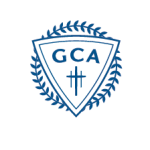Curriculum
Elementary and Middle School Curriculum
Elementary School
All curriculum at Grace Christian Academy is Biblically based. Our students participate in STEAM (Science, Technology, Engineering, the Arts, and Mathematics), language arts, social studies, foreign language, community outreach, and physical education, which enable them to begin exploring individual differences.
Middle School
Students are challenged to become critical thinkers and problem solvers. The development of the whole child is important as students participate in band, choir, art, Spanish, physical education, computer programming, and drama, along with their core subjects of math, science, social studies, language arts, and Bible. We inspire and prepare them for leadership by involving them in student council and community service projects such as I.H.E.L.P., Feed My Starving Children, and Operation Christmas Child.
Bible Classes and Curriculum
With different Bible studies and curriculum for each grade, students at Grace Christian Academy will be taught to study, analyze, and apply Scripture to their lives. By the time a student graduates from Grace, he or she will have had an overview of the entire Bible from Genesis through Revelation. The student will have committed to memory a substantial amount of Scripture, along with the knowledge and understanding of the practical application of Scripture in a believer’s daily life.
Education Enhancement Program
The purpose of the Educational Enhancement (EE) Program at Grace Christian Academy is to provide Christ-centered academic support for students who have shown signs of learning difficulties. The Educational Enhancement services are offered to students through a variety of programs, including Search and Teach, traditional resource, and classroom support. Educational Enhancement services focus on helping students reach their academic potential in a regular educational setting. Services are designed for students with mild academic difficulties. The program is not intended to replace specialized assistance for students with more severe learning problems or other types of disabilities.
Preschool Curriculum
The preschool program is a combination of Core Knowledge curriculum and Thematic Units that have been developed by our certified preschool staff. Core Knowledge is a set of model guidelines describing fundamental competencies and specific knowledge for children ages 3-5 in the areas of movement, social skills, work habits, language, emerging literacy skills in reading and writing, scientific and mathematical reasoning, music, orientation in time and space, and visual arts (which are a basis of the curriculum our preschool program has developed). Research shows that structuring curriculum in this form is beneficial for preschool age children. These competencies provide a coherent foundation for Kindergarten and beyond.
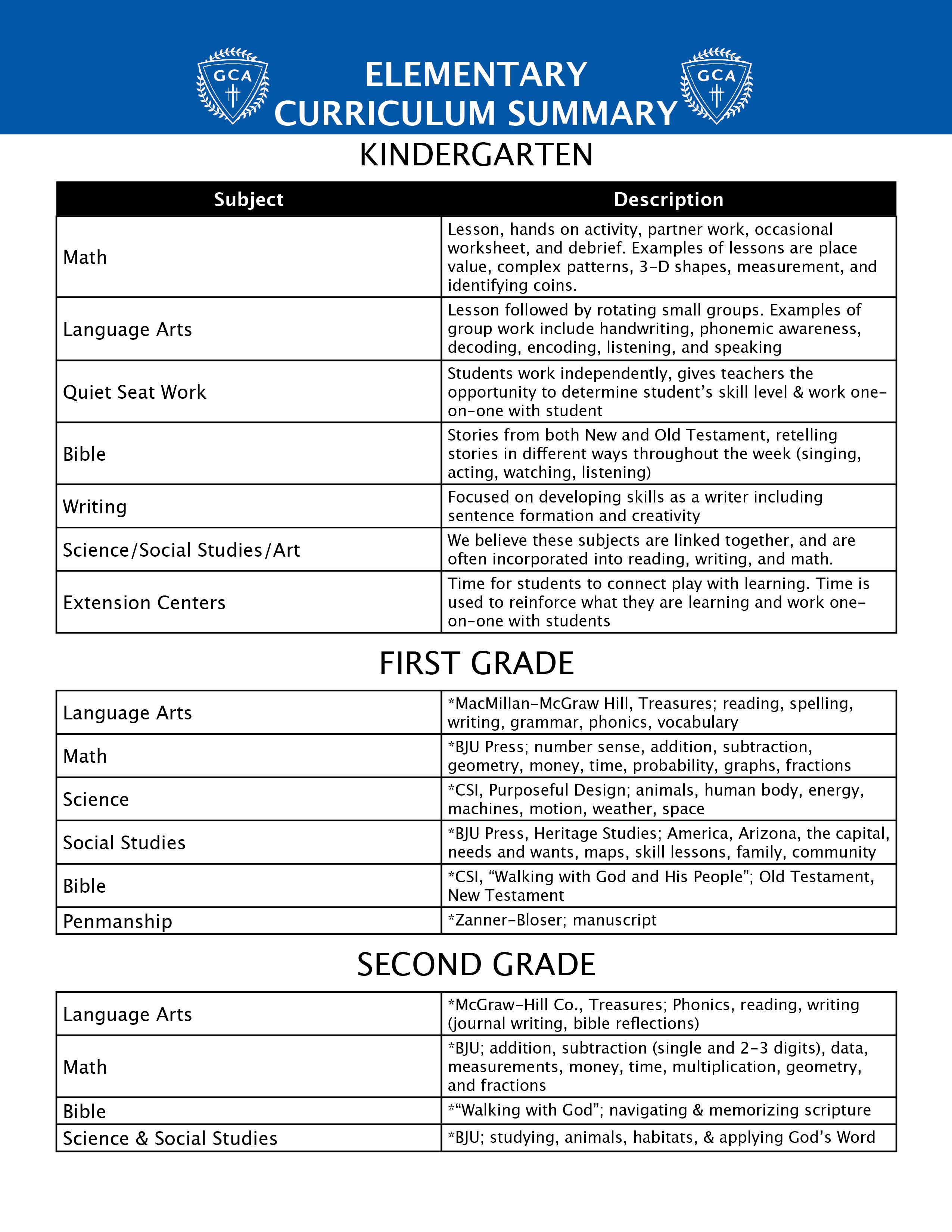
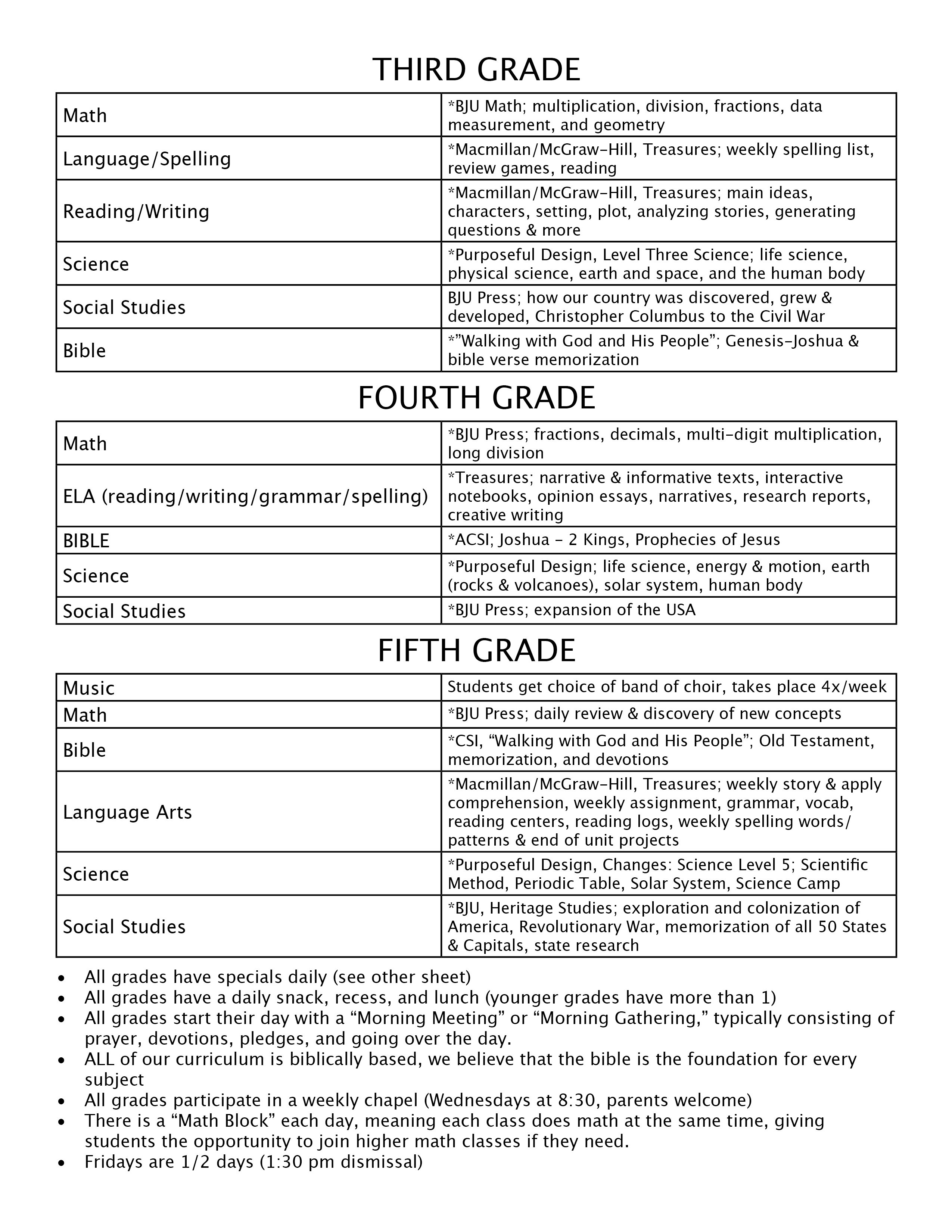
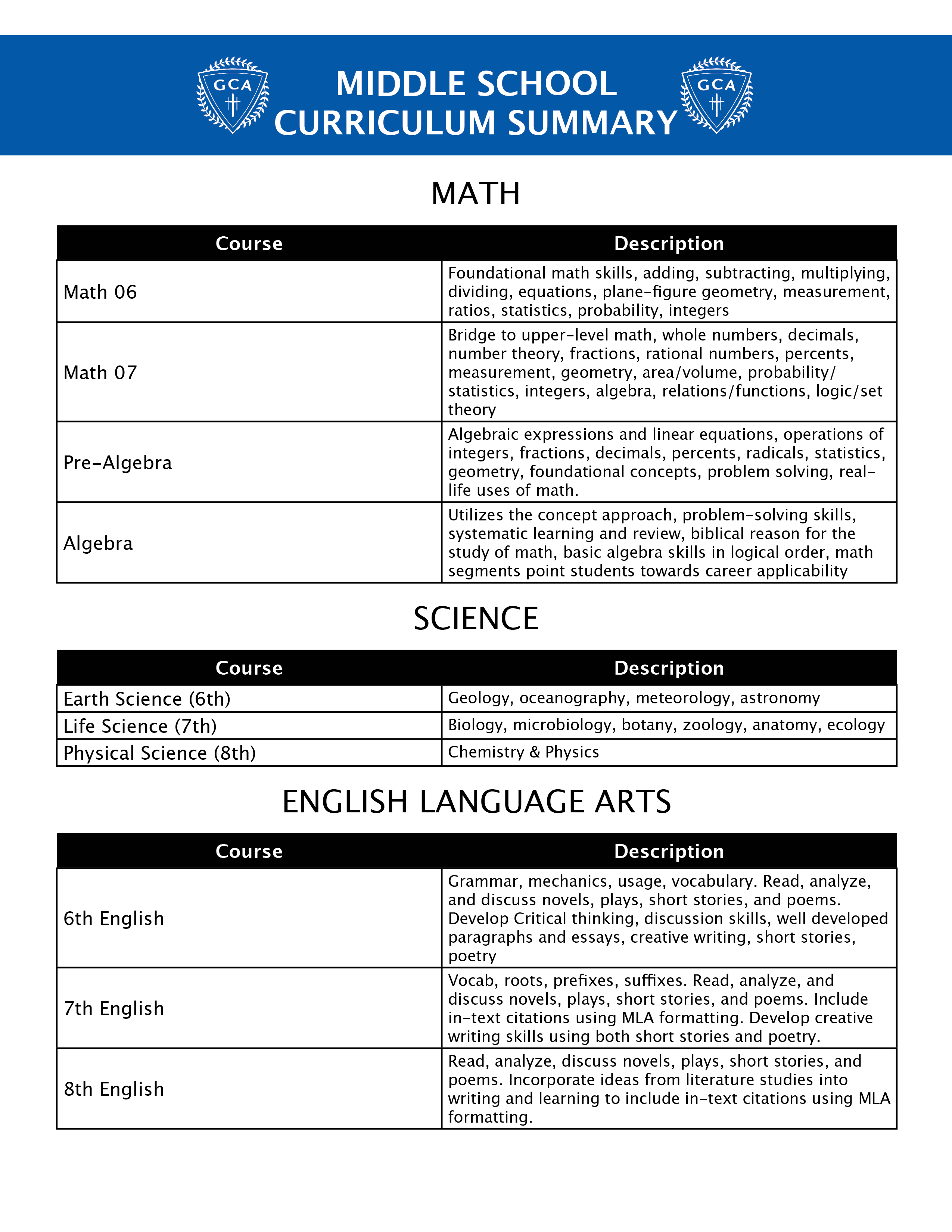
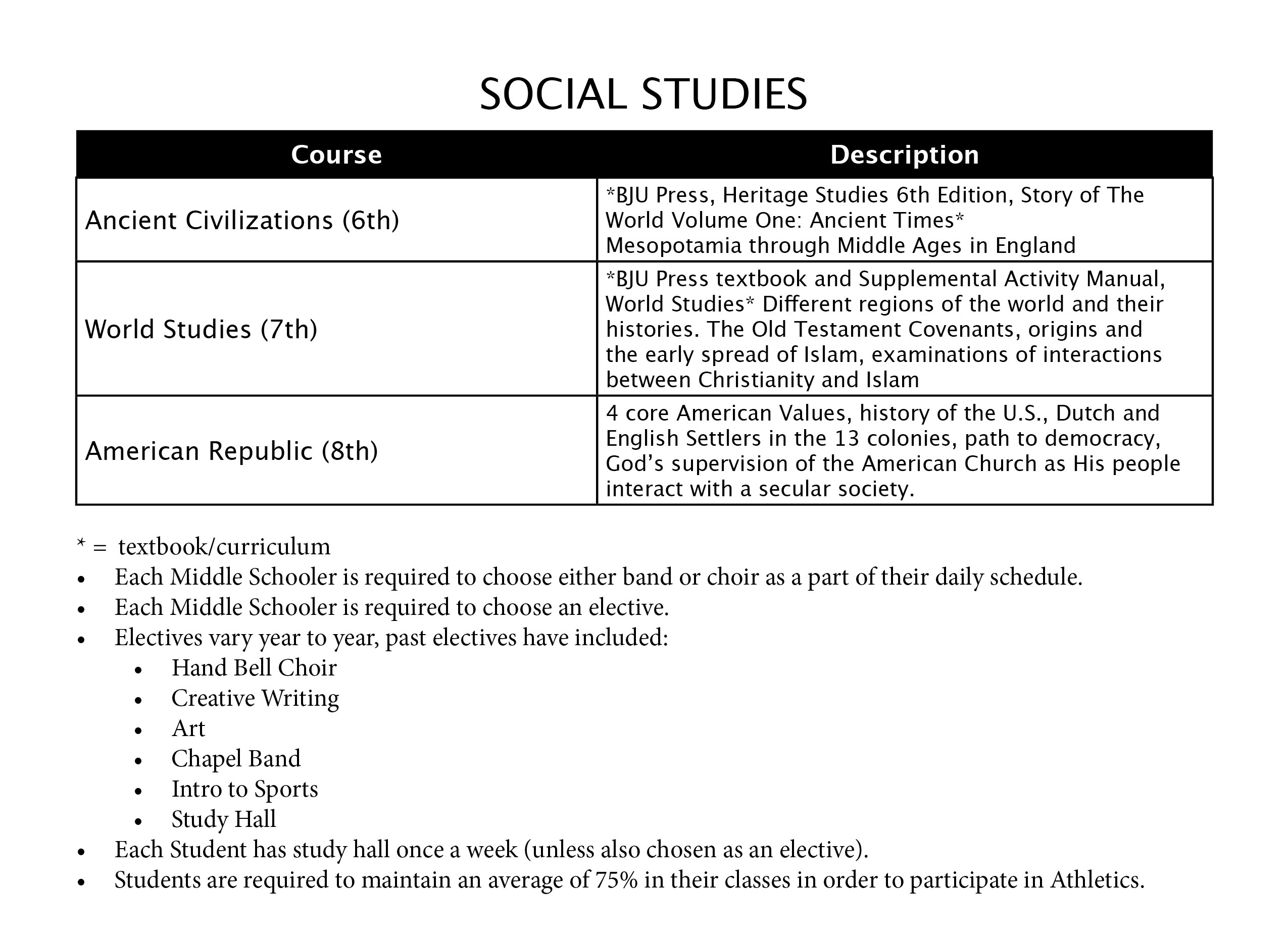
Teaching for 3-4 year olds in preschool is done through the use of monthly themes such as:
- All About Me
- The Five Senses
- Transportation
- Community Helpers
- Construction
- Weather
- Health & Nutrition
- Animals
- Friendship
- Children of the World
The CURRICULUM used to broaden the themes is: Core Knowledge Preschool Sequence – a set of model guidelines describing fundamental competencies and specific knowledge that, for children from three to five years of age, can provide a solid, coherent foundation for later learning in kindergarten and beyond. (www.coreknowledge.org) The 3/4 class is introduced to the alphabet using Zoo-phonics learning uses a signal, animal, and sound for each letter. Introductory Spanish is also introduced by way of songs and games. We use the ABeka Book Bible curriculum to foster spiritual growth as the children hear Bible stories, learn God’s Word through memorization, and see God’s principles taught and modeled throughout the school day.
PreSchool Learning Experiences
Social and Emotional Development
- How to interact with other children.
- How to respond to teacher’s directions in a positive way.
- How to follow simple two step directions.
- Progressively lengthening their attention span in a group setting.
- Learning the routines of a classroom.
- Learning to share, take turns, and work cooperatively.
- Begin to learn problem solving skills.
Academic Development
- Recognize and identify first name and the letters in their name.
- Recognize and identify shapes, numbers and colors.
- Progression in counting and one-to-one correspondence.
- Repeat simple rhymes, songs and finger plays.
- Do simple comparisons of objects and classify them.
- Work with patterns, puzzles, and pairs.
- Developing pre-reading skills.
- Teach healthy eating habits.
- Increase their critical and creative thinking skills.
Spiritual Development
- Chapel once a month.
- Bible Stories.
- Bible memory verses with Sign Language and song.
- Talking to God through prayer.
Fine Motor Development
- Cutting with scissors, writing strokes, and using various art media.
- Using manipulatives, building materials, and playdough.
- Strengthening hand muscles using various techniques.
Large Motor Development
- Indoor and outdoor play and games.
Schedules 2018-2019
PreSchool students in this category must be 3 years old by September 1 and fully potty trained. 2 Half Days (T/Th) 8:30am – 11:30am | 2 Full Days (T/Th) 8:30am – 3:00pm | 3 Half Days (MWF) 8:30am – 11:30am | 3 Full Days (MWF) 8:30am – 3:00pm
Alphabetical Theme
Thematically, a letter of the alphabet is emphasized each week allowing the various centers and hands on learning experiences to revolve around that letter. The CURRICULUM used to broaden the alphabetic theme for children in this preschool level is: Core Knowledge PreSchool Sequence – a set of model guidelines describing fundamental competencies and specific knowledge that, for children from three to five years of age, can provide a solid, coherent foundation for later learning in kindergarten and beyond. (www.coreknowledge.org) Zoo–phonics is used as part of our literacy program. This is a creative, multi-sensory approach using animals that represent each letter. Each animal incorporates a picture linking the shape of the letter with its sound to help children make connections as they learn the alphabet. Introductory Spanish is taught using multi-sensory techniques.
PreSchool Learning Experiences
Social and Emotional Development
- Responding to teacher’s direction in a positive way.
- Adjusting to changes in routine and situations without fear.
- Becoming more self directed.
- Lengthening their attention span in a group setting.
- Learning to participate in group activity.
- Learning personal responsibility in a classroom setting.
- Learning to share, take turns and work cooperatively.
- Learning problem solving skills.
- Learning to be respectful of classmates and teachers.
- Practicing good manners.
Academic Development
- Recognizing and identifying first name and last name.
- Printing first name using upper and lower case letters.
- Recognizing the upper and lower case letters.
- Recognizing beginning sounds in words.
- Sequencing stories and activities.
- Identifying shapes and colors.
- Counting to 20.
- Recognizing and writing numbers 1-10 and learning one-to-one correspondence.
- Making simple comparisons of objects and classifying them.
- Working with patterns, puzzles, and pairs.
- Learning to follow 3-step directions.
- Rhyming and naming opposites.
- Increasing critical and creative thinking skills.
Spiritual Development
- Chapel once a month.
- Bible Stories.
- Bible memory verses with Sign Language and song.
- Talking to God through prayer.
Fine Motor Development
- Cutting with scissors, writing strokes, and using various art media.
- Using manipulatives, building materials, and play dough.
The Pre-K class is designed to meet the needs of children who need the gift of one more year to develop into leaders going into kindergarten. The curriculum reinforces attained skills from previous preschool experience and expands and solidifies the skills necessary to build a solid educational foundation and social foundation for the future. Thematically, a letter of the alphabet is emphasized each week allowing the various centers and hands on learning experiences to revolve around that letter. The CURRICULUM used to broaden these themes is: Core Knowledge PreSchool Sequence – a set of model guidelines describing fundamental competencies and specific knowledge that, for children from three to five years of age, can provide a solid, coherent foundation for later learning in kindergarten and beyond. (www.coreknowledge.org) Multi Sensory Reading Readiness Program is used to introduce the child to the kindergarten emerging literacy program in a developmentally appropriate way in the areas of letter recognition, phonological awareness, oral language, and multi sensory letter introduction. Zoo-phonics provides an additional multi-sensory learning experience for phonemic awareness.
PreSchool Learning Experiences
Social and Emotional Development
- Responding to teacher’s direction in a positive way.
- Adjusting to changes in routine and situations without fear.
- Becoming more self directed.
- Lengthening their attention span in a group setting.
- Learning to participate in group activity.
- Learning personal responsibility in a classroom setting.
- Learning to share, take turns and work cooperatively.
- Strengthening problem solving skills.
- Learning to be respectful of classmates and teachers.
- Practicing good manners.
Academic Development
- Recognizing and identifying first name and last name.
- Printing first name using upper and lower case letters.
- Recognizing and writing the upper and lower case letters.
- Recognizing the sounds of the letters.
- Beginning to discriminate beginning / middle / ending sounds in words.
- Sequencing stories and activities.
- Identifying shapes and colors.
- Counting to 30.
- Recognizing and writing numbers 1-10 and learning one-to-one correspondence.
- Making simple comparisons of objects and classifying them.
- Working with patterns, puzzles, and pairs.
- Learning to follow 3-step directions.
- Rhyming and naming opposites.
- Increasing critical and creative thinking skills.
- Using visual discrimination skills.
- Introduction to Spanish.
- History and Geography activities.
Fine Motor Development
- Cutting with scissors, writing strokes, and using various art media.
- Using manipulatives, building materials, and playdough.
- Strengthening hand muscles using various techniques.
Large Motor Development
- Participating in indoor and outdoor play and games.
- Doing rhythmic patterns and creative movement.
Oral Development
- Learning to speak clearly in complete sentences.
- Learning to express themselves clearly to the teacher and to the class.
- Sharpening their speaking and listening skills.
- Learning simple rhymes, songs, and fingerplays.
Spiritual Development
- Learning who God is.
- Learning of God’s great love for them.
- Learning God’s Word through stories/verses/song.
- Talking to God through prayer.
